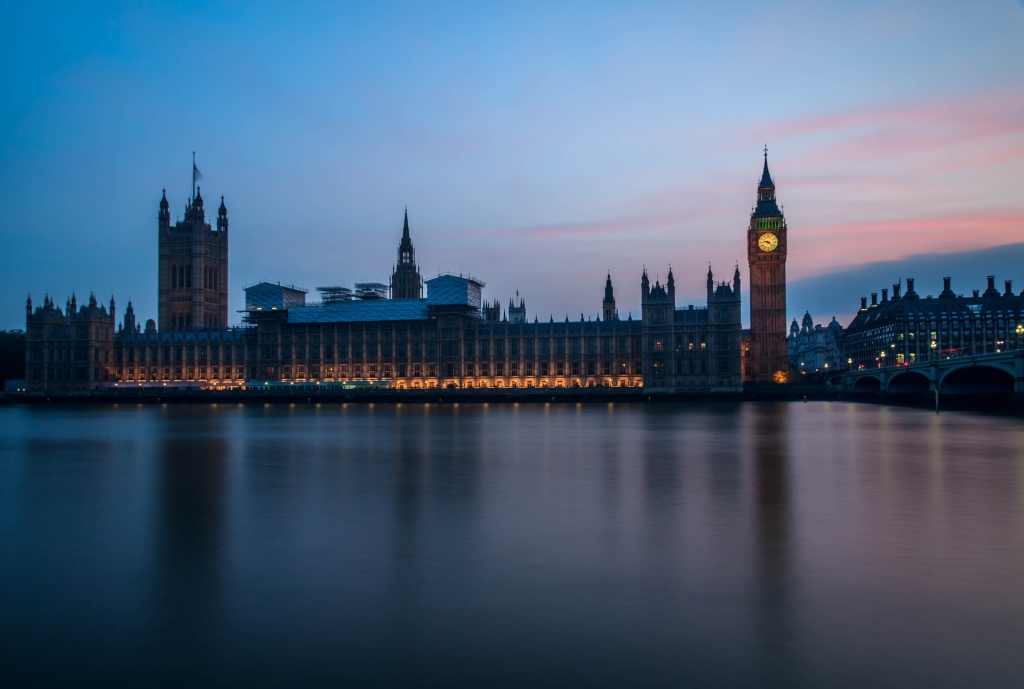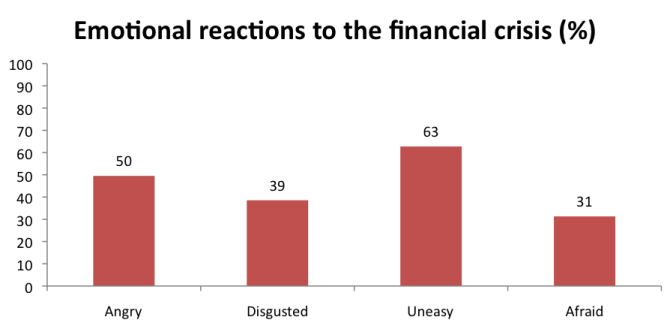 The public is losing faith in the political process – both in the UK and in many Western democracies. Politicians gather public support for promises they cannot realistically achieve, while many policies are developed and implemented in fundamentally flawed ways. Drawing on his insider experience, Nick Raynsford proposes three steps that would trigger meaningful change.
The public is losing faith in the political process – both in the UK and in many Western democracies. Politicians gather public support for promises they cannot realistically achieve, while many policies are developed and implemented in fundamentally flawed ways. Drawing on his insider experience, Nick Raynsford proposes three steps that would trigger meaningful change.
2016 has not been a good year for politics or politicians. Whether we are looking at the Trump candidacy in the USA, the tragic-comedy of the Brexit referendum, or the unrelenting horrors of Syria, again and again we come face to face with the uncomfortable truth that the public is rapidly losing faith in the political process as practiced in most Western democracies. Hardly surprising then, if an increasing number are turning away from conventional politics, embracing ‘protest’ or ‘gesture’ parties or candidates, or using opportunities such as a referendum to send a message of disapproval to the ‘political elite’ in their ‘Westminster (or Washington) bubble’.
This response may be understandable at one level, but it is not a solution. On the contrary, the outcome will inevitably be greater public disaffection: as the ‘protest’ politicians predictably fail to deliver on pledges that were unrealistic (Syriza in Greece) or as ‘change’ policies (Brexit) unravel because of their inherent contradictions (“having your cake and eating it” as Boris Johnson memorably advocated). In the meantime, those who advocate ‘politics as usual’ compound the problem by failing to acknowledge the extent of public alienation, let alone coming up with effective solutions.
So here are three simple propositions that could help to make a difference:
First, it is time for more politicians to admit the limits on what they realistically can achieve. The prevailing political culture with its strong emphasis on ‘spin’ and presentation conveys the impression of all-powerful party leaders able to effect transformational change within incredibly short timescales. The reality is that all governments are severely constrained by a variety of economic, political and social forces both domestically and internationally. Most substantial political change takes sustained commitment over a long time to achieve lasting and worthwhile results.
Yet by peddling the illusion that these constraints don’t exist, or at least can be simply and easily overcome, politicians are compounding the widespread public perception that they are both liars and incompetent. The harsh truth is that you can’t have your cake and eat it. It is not possible to halt immigration without doing catastrophic damage to the economy, quite apart from the likely impact on race equality, community cohesion and international relations.
Today’s world is infinitely more complex and interdependent, and also much wealthier than in the longed-for past when we ‘had control of our borders’. Trying to go back to an imagined ‘golden age’ is not only impossible; it would also be a recipe for the impoverishment of our society. In my view, a necessary precondition of restoring trust would be a willingness to face up to uncomfortable truths and begin a more mature dialogue with the electorate on what is feasible and realistic, as well as what is desirable.
Secondly, politicians need to understand just how toxic is the perception that they live in a ‘bubble’, remote from the lives of others. In any other walk of life, people who behave like at least one candidate for the Presidency of the United States of America, and more than one candidate for the Leadership of the British Conservative Party in recent months, would be considered delusional and unfit to hold even a minor office, let alone the leadership of their country.
Nor is this just the foibles of a few. The whole culture of the ‘Westminster village’, and the way it is depicted in a television series such as The thick of it reinforces the perception of a political class living according to utterly different rules to the rest of society. There has always been a tension in representative democracy between electing people who will represent the society they govern, and people with the ability to give that society effective leadership. Those elected to hold high office will inevitably find themselves living in a rather different environment to the majority of the people who elect them. Most members of the wider public understand this.
But if the public sense that the politicians whom they have elected have become a separate ‘caste’, behaving badly as a matter of course, and routinely subordinating the public interest to their own personal ambitions, there is very little chance of respect, let alone trust.
Thirdly, we need to acknowledge that the way that policies are currently developed and implemented is, in most instances, a guarantee of their failure. Too often they are thought up ‘on the hoof’ or emerge from a ‘think-tank’ staffed by inexperienced young policy ‘wonks’ with little or no real world experience. They then get adopted by a small group of politicians and special advisers primarily interested in how the policy will play in the media and whether it will gain a positive image for their party.
If the policy passes this test, it can often be adopted and inserted into a party manifesto with no serious analysis of what will be required for successful implementation, let alone a realistic assessment of the likely outcomes. If anyone with relevant experience questions the policy, they are likely to be denounced as ‘experts’ whose views should not be listened to.
Thereafter, the policy is rapidly transformed, assuming the party wins the subsequent election, into the equivalent of ‘Holy Writ’ because it was a Manifesto commitment. Against this background, it is hardly surprising that the landscape of government is so littered with failures, as well documented in Anthony King and Ivor Crewe’s The Blunders of our Governments.
So the whole approach to policy development needs to be turned on its head, with a renewed focus on what is needed to secure effective implementation, and a rigorous analysis of the likely consequences. If this is to happen it will require a much tougher process of evaluation before legislation is introduced and much better scrutiny during its passage to the Statute Book.
In my recent book Substance not Spin I set out a series of proposals to help achieve better policy making and policy implementation. Getting this right will not on its own restore the reputation of politics and politicians – the damage that has been done in recent years will take much more to repair – but it should at least start a process of reform. And that in my view is essential to halt the downward spiral into a morass in which politics seems currently trapped.
____
Substance not spin: An Insider’s view of success and failure in Government by Nick Raynsford is published by Policy Press (2016). It is available at a 20% discount on the Policy Press website or 35% if you join their mailing list.
 Nick Raynsford was a government minister from 1997 to 2005, he was the Member of Parliament for Greenwich & Woolwich from 1997 to 2015, having previously been MP for Greenwich from 1992 to 1997, and for Fulham from 1986 to 1987.
Nick Raynsford was a government minister from 1997 to 2005, he was the Member of Parliament for Greenwich & Woolwich from 1997 to 2015, having previously been MP for Greenwich from 1992 to 1997, and for Fulham from 1986 to 1987.









Policy needs a longer term approach. To achieve this we need an electoral system that fosters continuity of policy because it does not exaggerate small movements in public opinion, and so does not result in policy swinging wildly from one side to the other.
’First Past the Post’ is the main cause of the first and third problems you identify in your article. We need PR. A PR system such as DPR Voting that has a separate focus on the choice of candidate would address the second problem and thus be a more complete solution.
Well those who live in the westminster bubble are certainly not in line with the public, as shown by the amount of them who think that democracy should only be there to elect them to office and not to choose to leave the democratically deficient eu. It is a tragedy that they are still harping on about ignoring the will of the people, althoguh they are fully supportive of it when it is them getting a well paid job.
The problem lies with who the politicians represent, over the last forty years neo-liberal politicians have reduced taxation for the mega rich whilst transferring the real tax burden on those least able to pay.
If we want a model of how politics can work for people, we need only look back to the post war Labour Party that put people before profits.
We also know that money is not a problem for a sovereign nation like us, the deficit lie has long been exposed and even the Tories have given up pretending as much, corporate power has dictated everything over the last thirty years which has led to the collapse of the world economy. People are the generators of wealth not the private sector, only when we get a government that recognises that will we start to rebuild our economies.
I wouldn’t blame the politicians – it’s the system that’s wrong.
Imagine a true Democracy with PR and corruption addressed!
But who’s interested in that? Where is the institutional body that’s responsible for Democracy? How do we access our “constitution”? Who’s addressing corruption e.g. £3.5 for dinner with the PM? Eh?
Whilst I agree with your diagnosis of the problem, do you not think that the solutions (certainly the first two) are simplistic?
No politician would ever be elected to anything if his campaign readily admitted his own limitations. The media would eat him for breakfast. Is it not really up to voters to lower their expectations and more crtically examine the media?
The same is true of the ‘bubble’ idea. One again voters are too easily swayed by the media. So Corbyn, who really doesn’t exist in a Weatminster bubble and has spent decades as an outsider, is reviled. Yet Boris, the quintessential upper class politico, is loved. Both of these responses are guided by the media.
Wise words – but for me, something fundamental is missing which could resolve all the issues he raises. It’s Democracy, been around in part of ages but gets taken for granted.
The electorate needs to be informed but not brainwashed; it needs range of candidates for parliament to choose from to best represent their many views. The MPs need to be fully representative – and need to make a government free from the corruption of big money and other influences.
So our government fails on every point for Democracy to happen in the UK. Once we get this sorted, then politicians can be more realistic, the democratic process will de-toxify Westminster, and our law making can be better constructed, more effective and durable.
But there’s seems to be little interest in Democracy in Westminster. No statuary body responsible for it, no easy access to our constitution, and no interest for reform from the two main parties.
Without Democracy, we resort to two party tribalism of which the referendums/a, the US election and PMQs are examples.